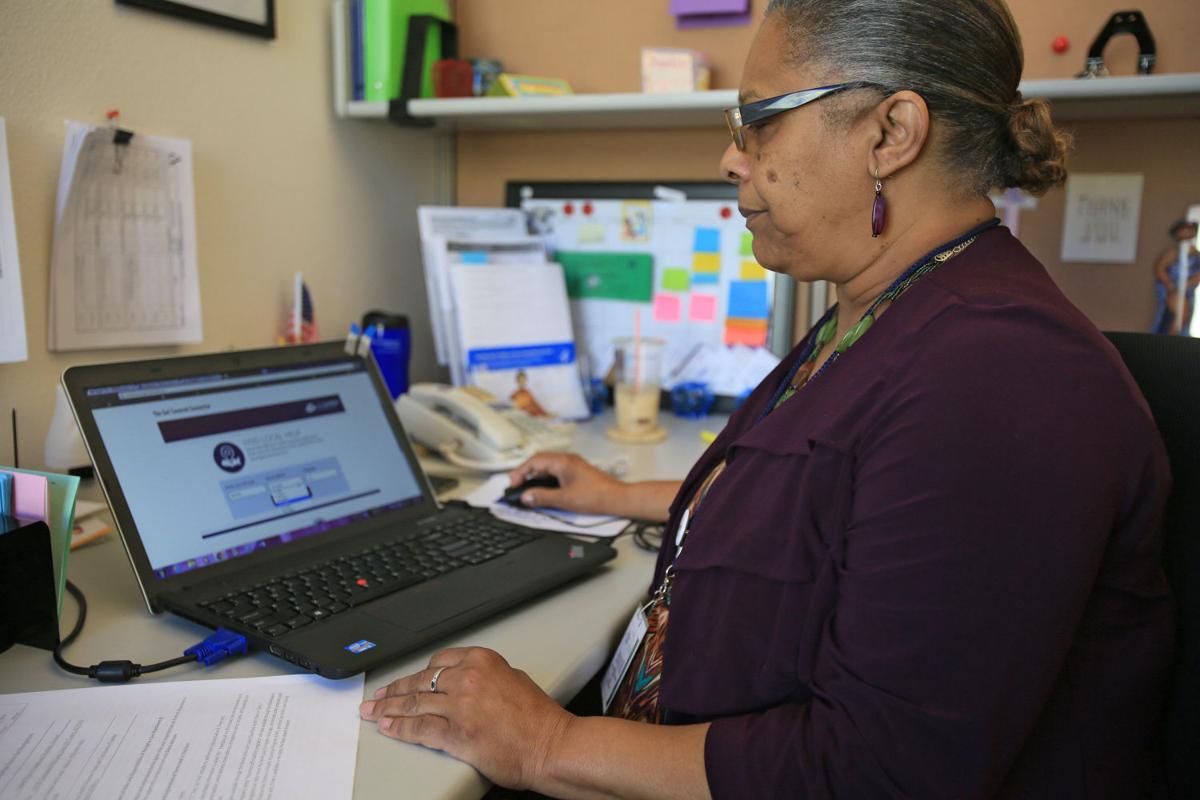There’s still time for procrastinators in Pima County to get health coverage via the federal exchange before Sunday’s 10 p.m. open enrollment deadline.
As of Jan. 23, 185,459 Arizonans had enrolled in coverage on the exchange, federal data shows, including 31,478 in the Tucson area.
Those numbers are expected to spike this weekend.
The exchange, created by the Patient Affordability and Affordable Care Act, sells private insurance to individuals and families who aren’t insured through their employer or a government program.
Last year, 205,666 Arizonans bought insurance on the exchange, a 71 percent increase from 2014, which was the first year of the health exchanges. That year, 120,071 Arizonans enrolled.
Purchasing health insurance on the exchange, also called the insurance marketplace, is the only way to qualify for federal subsidies to help cover the cost of insurance coverage.
So far, 74 percent of Arizonans who have bought health insurance on the marketplace during this open enrollment have qualified for federal financial assistance to help pay for it.
In Pima County there are 28 plans available on the marketplace from five insurance companies — Blue Cross Blue Shield of Arizona, HealthChoice, Health Net, Humana and UnitedHealthcare.
Enrollment has been steady, and Arizona appears to be on track to match or exceed last year’s level, said Michal Goforth, executive director of the Pima Community Access Program in Tucson, which connects uninsured people to insurance.
Some states like California chose to create their own state-based exchanges. Arizona opted to use the federal exchange. The website is healthcare.gov and the toll-free phone number is 1-800-318-2596.
Pima County residents may purchase insurance directly from the marketplace, or they can get enrollment assistance free of charge at several local sites between today and Sunday.
The United Way of Tucson and Southern Arizona, Carondelet St. Mary’s Hospital, Carondelet St. Joseph’s Hospital and the Pima County Health Department will all have walk-in hours for enrollment help today and this weekend. (See box for details)
Goforth says it’s best if people attending enrollment events this weekend make appointments ahead of time, but walk-ins are welcome.
The number of Arizonans without health insurance has dropped since 2014, when most provisions of the Affordable Care Act took effect. Still, an estimated 827,000 Arizonans remain uninsured, and the state has one of the highest rates of uninsured children in the country.
Among groups with high levels of people who are eligible for the marketplace but remain uninsured are Latinos, American Indians and people living in rural areas, said Dr. Dan Derksen, a health-policy expert at the University of Arizona’s Mel & Enid Zuckerman College of Public Health.
One of the most important things for individuals and families without health insurance to know this year is that the penalty for not having insurance will be significantly higher than it has been in prior years. The Affordable Care Act passed by Congress mandates that all Americans have health insurance. Fines began in 2014 and have been gradually increasing.
The average penalty for remaining without coverage in 2016 will be $969 per household — 47 percent higher than the 2015 estimated average of $661, a recent Kaiser Family Foundation analysis found.
Goforth said anyone who has purchased insurance on the marketplace is not considered insured until they pay their first premium to the insurer. It typically takes about 15 days for coverage to take effect.
A few other things to know about enrolling in health insurance this year:
- If you have government insurance such as Medicaid or Medicare, or have employer-sponsored insurance, you don’t need to use the exchange.
- There are more HMO plans this year. The disadvantage to HMOs is that they are narrower networks. That means they include only certain doctors, so if your longtime primary care physician is not in the network, you’ll need a new doctor. Also, some HMO plans require a primary-care referral to a specialist.
- The federal subsidies can help keep monthly premiums down.
- Premiums should not be the only factor people consider when they buy a plan — networks and deductibles are also important and could affect overall cost. Higher monthly premiums typically mean lower deductibles and co-pays for health care.
- Consumers should never have to pay money to get help enrolling in a plan via the health insurance exchange.
Local “navigators” and “certified enrollment assisters” are available free of charge to help. They do not receive a commission for enrolling people, and they must be unbiased and have no conflicts of interest. They can also help people sign up for Medicaid.
- Insurance brokers can help people sign up at no cost to the consumer.
- People who had a health insurance plan through Meritus in 2015 have an extra month to enroll — until March 1. Tempe-based Meritus is no longer in business.
- If you miss Sunday’s deadline, you may qualify for a “special enrollment period,” but after getting complaints, the federal government has tightened requirements for the special enrollment period.
A special enrollment period, when people may purchase insurance on the marketplace outside the open enrollment period, must occur within 60 days after certain life events that involve a change in family status such as marriage, the birth of a child or loss of other health coverage.
- Don’t assume you won’t qualify because of your immigration status. While qualifying for AHCCCS requires U.S. residency for five years or more, the Affordable Care Act does not have any minimum length of residency requirements for legal immigrants.





